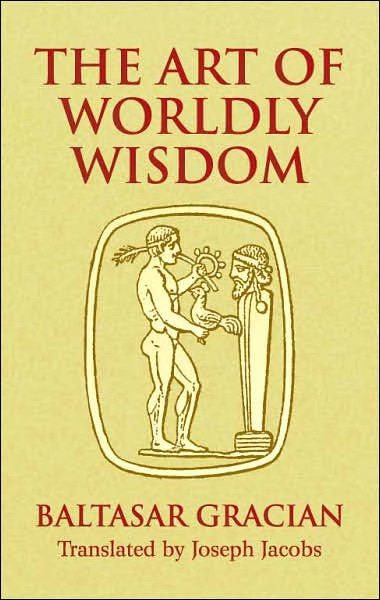Wise as Serpents, Innocent as Doves

The Art of Worldly Wisdom.
In the 2010s a wave of sophomore Machiavellianism swept through American culture. Robert Greene’s amusingly amoral books (The 48 Laws of Power, The 33 Strategies of War, The Art of Seduction) were teaching corporate strivers and self-help enthusiasts to outmaneuver, deceive, bamboozle, seduce, lie, fool, and manipulate their way to the top. Rappers also took to Greene, and he achieved the distinct honor of becoming one of the most banned authors in American prisons. On a larger scale, HBO’s megashow Game of Thrones took brutal delight in scandalizing viewers with the execution of honorable men and the triumph of schemers—also implying that these happenings were merited. “When you play the game of thrones,” one character says, “you win or you die.”
Must confess: at a more clueless point in my life, I was drawn in by this rage for strategic cunning, which offered a refreshing alternative to the Hallmark Family Channel morality that was still kicking during my formative years, all warm feelings and platitudes and happy endings. Greene and HBO were reaping a ridiculously easy harvest, thanks to the shallow moralists.
But cunning-culture quickly ran out of energy, as the final seasons of Game of Thrones limped to an embarrassing ending—a failure that indicated the fruitlessness of the edgelord vision. The showrunners couldn’t conclude their project; they didn’t know how. And what had once been the pop-cultural event of the decade became a joke.

A Better Teacher
The one thing my fake-edgy phase accomplished was to increase my appreciation when I later discovered the 17th century Spanish Jesuit Baltasar Gracián (whom Greene cites at least thirty times in The 48 Laws of Power).
Gracián was a priest, writer, and teacher, best known for The Art of Worldly Wisdom—a collection of 300 aphorisms written in a distinct and compressed style. Arthur Schopenhauer called the book “absolutely unique”: “To read it once through is obviously not enough; it is a book made for constant use as occasion serves—in short, to be a companion for life.” Friedrich Nietzsche was another admirer, saying “Europe has never produced anything finer or more complicated in matters of moral subtlety.” These skeptics weren’t exactly known for praising priests.

More than any other writer I’ve yet encountered, Gracian explores what it means to be “wise as serpents and innocent as doves”: the difference between his prudent wisdom and Greene’s mere cunning is the difference between a man seeking to achieve real good in a perilous world and one seeking to get his own way. Maxim #32 captures the larger vision of Gracián’s project: “Tis the chief glory of the high and mighty to be gracious, a prerogative of kings to conquer universal goodwill. That is the great advantage of a commanding position—to be able to do more good than others.”
In order to achieve the higher position from which one can do much good, Gracián counsels his students to have a “big stomach” for victory. “Many are troubled as it were with weak digestion, owing to their small capacity, being neither born nor trained for great employment … A man of talent therefore should show that he has more room for even greater enterprises, and above all avoid showing signs of a little heart.” His book counsels one on how to go about it, without losing his soul in the process. He catalogues an assortment of virtues—justice, courage, temperance, humility, magnanimity, and more—which help a man to win and do good.
Master Your Tongue
To turn to an overlooked one: Gracian is particularly adamant about mastering the “wild beast” that is one’s tongue. Speech gives a man away. “It is the pulse of the soul by which wise men judge of its health: by this pulse a careful observer feels every movement of the heart.” The urge to speak needlessly and fruitlessly presents a danger more subtle than the desire for excess food or drink or sex—because talking is something we do so much more often, and slips of the tongue can easily escape our notice and alarm. The costs of these errors add up, harming others and ourselves and our chances.
In every direction you can spot people addicted to the low pleasures found in complaining, gossiping, criticizing, spilling unnecessary details, airing grievances, and so on—and not only women but almost as many men too. They cannot help themselves, and in the process they lose power, presence, and aura.
Maybe the worst are those insecure intellectuals who take every opportunity to turn conversations into classroom lectures which showcase their abundant and obnoxious learnedness. They need you to know how smart they are. But the man with mastery over his tongue feels no overwhelming urge to impress and is wise enough to know there may even be advantage in keeping “the extent of [his] abilities unknown.”
The good news is that the verbal incontinence of others is an opportunity for us to distinguish ourselves with a little mystery which reflects a combination of confidence, humility, and good taste. “Reticence is the seal of capacity,” Gracián writes.
Of course the author is not suggesting that we take vows of monastic silence. Conversation is one of the delights of life, and manly frankness is a great virtue—but frankness does not demand that all of our thoughts, feelings, and intentions be broadcast at all times. Gracián uses the analogy of cards: poker is not fun when everybody immediately shows what they’re holding, and to keep these metaphorical cards closer to the vest gives a man an edge in the game. No need to be shifty about it—just in control, exercising good judgement about what ought to be shared, and when.
Don’t explain what doesn’t need explaining. Don’t be overly hasty to show your wounds and discuss your disappointments. Generally avoid talking about yourself. Also avoid discussing the failures of others unless it is quite necessary. And make sure to refrain from complaint.
“To complain always brings discredit,” Gracián says. This is one of the most unnecessary wastes of words—and not just because it’s trashy but because it tends to bring more things to complain about; in giving voice to our bitterness, we become more bitter and give good people a reason to avoid us, thus setting in motion vicious cycles which invite additional bitterness into our lives. Gracian adds: “It is much more politic to praise one man’s favors, so that others may feel obliged to follow suit. To recount the favours we owe the absent is to demand similar ones from the present, and thus we sell our credit with the one to the other. The shrewd will therefore never publish to the world his failures or his defects, but only those marks of consideration which serve to keep friendship alive and enmity silent.”
The summary of Gracian’s thoughts on prudent mastery over one’s tongue is captured in maxim #160: “There is always time to add a word, never to withdraw one.”
A Man in Full
Gracián has much to say about the details of that help one to get ahead in life. He stresses the importance of attending not just to realities but also to appearances. He highlights the need for a good sense of timing. He emphasizes the importance of last impressions over first impressions. He advises against victories over our superiors which cause resentment.
But much more important is the larger picture of becoming a certain kind of man.
A courageous man: “Knowledge without courage is sterile.”
An active and enterprising one: “Many have had eminent qualities, yet, for want of a stout heart, they passed inanimate lives and found a tomb in their own sloth.”
A patient one: “It’s a sign of a noble heart dowered with patience never to be in a hurry, never to be in a passion … Hurry is the failing of fools.”
A courteous one: “A bad manner spoils everything, even reason and justice; a good one supplies everything, gilds a No, sweetens truth, and adds a touch of beauty to old age itself. The how plays a large part in affairs, a good manner steals into the affections.”
A humble one: “Know yourself—in talent and capacity, in judgment and inclination. You cannot master yourself unless you know yourself.”
One with composure: “’Tis a great aim of prudence never to be embarrassed. It is the sign of a real man, of a noble heart, for magnanimity is not easily put out. The passions are the humours of the soul, and every excess in them weakens prudence; if they overflow through the mouth, the reputation will be in danger. Let a man therefore be so much and so great a master over himself that neither in the most fortunate nor in the most adverse circumstances can anything cause his reputation injury by disturbing his self-possession, but rather enhance it by showing his superiority.”
One with good taste: “You may know a noble spirit by the elevation of his taste: it must be a great thing that can satisfy a great mind.”
One with dignity: “Let each deed of a man in its degree, though he be not a king, be worthy of a prince, and let his action be princely within due limits. Sublime in action, lofty in thought, in all things like a king, at least in merit if not in might. For true kingship lies in spotless rectitude, and he need not envy greatness who can serve as a model of it.”
One with friends: “[Friendship] is a second existence.”
One with no need for base cunning: “It is a secret force of superiority not to have to get on by artful trickery but by an inborn power of rule. All submit to it without knowing why, recognizing the secret vigour of connatural authority. Such magisterial spirits are kings by merit and lions by innate privilege.”
A man who loves greatness: “Choose an heroic ideal; but rather to emulate than imitate. There are examples of greatness, living texts of honor … Nothing arouses ambition so much in the heart as the trumpet-clang of another’s fame. The same thing that sharpens envy, nourishes a generous spirit.”
A man who uses words carefully: “It is an important object of attention not to talk in superlatives, so as neither to offend against truth nor to give a mean idea of one’s understanding. Exaggeration is a prodigality of the judgment which shows the narrowness of one’s knowledge or one’s taste.”
A man who observes closely: “On seeing a person he understands him and judges of his inmost nature. From a few observations he deciphers the most hidden recesses of his nature. Keen observation, subtle insight, judicious inference: with these he discovers, notices, grasps, and comprehends everything.”
A man who consistently brings his best: “An able man is always the same in his best qualities; he gets the credit of trustworthiness.”
Finally, a man who loves justice: “A man of rectitude clings to the sect of right with such tenacity of purpose that neither the passions of the mob nor the violence of the tyrant can ever cause him to transgress the bounds of right.”
Gracián is more interested in virtue than trickery and this makes his vision superior to that of a cunning edgelord like Robert Greene—more interesting, more fruitful, more potent, more hopeful. Nothing good awaits Greene’s strivers except maybe a few moments in the sun after they’ve compromised themselves on the climb to the top; now they must watch their backs because soon enough another striver is coming to dispose of them, just as they had done unto others. Gracián shows a glimpse into a world where something more is possible than a war of all against all. Life is ultimately good, creation is good, and a sense of cosmic order abides, even though a tremendous catastrophe long ago unleashed evil and chaos and necessitated watchfulness on our part. The challenge of using good judgment to navigate a difficult and dangerous world—and to make it better through our own efforts—is what makes life interesting.
https://thechivalryguild.substack.com/p/wise-as-serpents-innocent-as-doves
